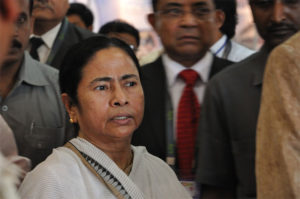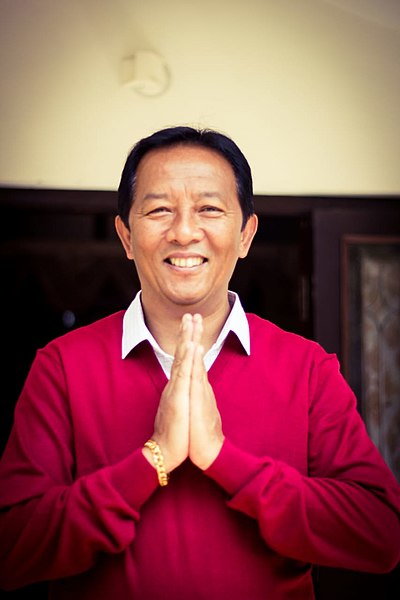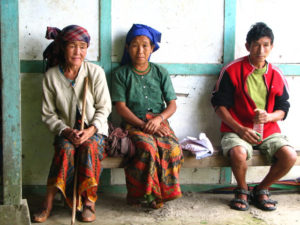Political machinations in India’s West Bengal state are threatening the Lepchas, or so they feel, and they are responding, characteristically, with peaceful protests. The Telegraph, a major Indian newspaper, described the dispute on Wednesday last week.

The issue revolves around the overall management of the Mayel Lyang Lepcha Development Board (MLLDB), which Mamata Banerjee, Chief Minister of the state, established as a development vehicle for the Lepcha communities in 2013 at the height of a power play by the Gorkha leaders. The Gorkhas are a rival society that is much more aggressive in their demands for power.
The Chief Minister, in a speech she gave a couple weeks ago, indicated that the development board and the boards of the other comparable organizations in the state, were going to become the responsibility of a new monitoring committee. The new committee will be under the direction of the Gorkhaland Territorial Administration (GTA). The MLLDB and the other development boards have all been administered directly by the state government until now.
Eman Lepcha, coordinator of the Indigenous Lepcha Tribal Association (ILTA), formally requested the state to not move the development board under the aegis of the GTA. He added that although members of the ILTA were participating in the protests, the agitation was in fact being organized by ordinary Lepcha people. They describe their protests as a “dharna,” a form of sit-down protest that is defined by Indians as strictly peaceful.

The article in The Telegraph indicated that the proposed coordinating committee would include Aroop Biswas, the Minister for North Bengal Development in the state government, plus two Gorkha leaders. They will be Anit Thapa, chief of the GTA and Binoy Tamang, leader of the Gorkha Janmukti Morcha, a political party which campaigns for a separate Gorkha state that they argue should be created out of North Bengal.
Members of Ms. Banerjee’s political party, the Trinamool (or Trinamul) Congress, in North Bengal also are getting caught up in the controversy. One person said that “If we lose our grip on the development boards, our party will be further weakened.”
Another party leader tried to mollify feelings by expressing the thought that the development boards would only be monitored by the new committee. They would continue making their own decisions as to the allocation of funds for proposed projects. The boards allocate their budgets of 200,000 Indian rupees (US$2,600) for such projects as constructing houses, improving drinking water, and building pathways.

Eman Lepcha said that the demonstrators were urging Lepcha leaders to work together for the good of the whole community. They wanted a resolution of the issues and allegations made about the work of the development board. The newspaper did not indicate if any Lepchas were commenting about the creation of the Lepcha language radio programming initiative taken by the board a month ago.